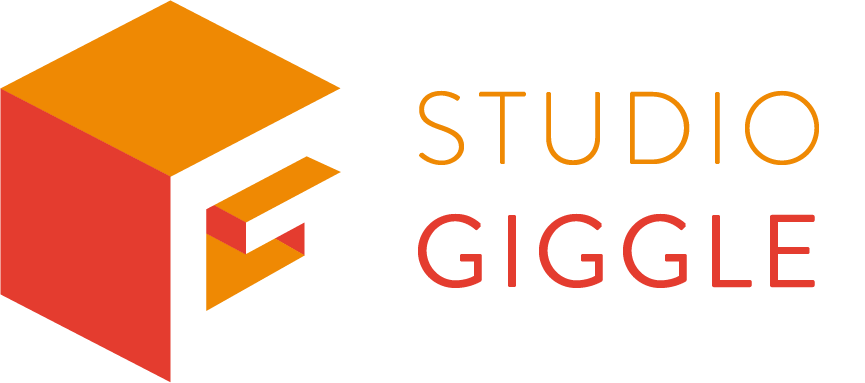I’ve sat down with designer/ animator Ed Vosper to learn about how he kick started his career in the animation industry.
Can you pinpoint when your interest in animation first started?
It was the summer holidays in Year 8, a friend came over with some lego and a camcorder. We wrote a little story and made a stop motion film. Looking back now I’m annoyed we had the auto-focus on!
When did you first study film/ animation?
I remember I was at a cross-roads in my life, it was the BTEC or training to become a tree surgeon in Canada, so I eventually decided to do a 2 year BTEC at Exeter College called Media Practice. Then I managed to win “Animation of Year” for a stop motion film while at college and that really spurred on my interest in animation.
Did you go to university?
I was almost not going to go. I took a gap year and wasn’t sure but it was when the fees were about to increase so I thought I should go. It was a toss up between a TV course at Westminster or a Creative Media at the University of West England. Creative Media at UWE included animation which is what swung it.
Was it worth it?
For me it was. Yes it’s a lot of money, but for me it was worth it. I liked that the course was very narrative driven and hands on. I met some friends for life who all work in media now. It also got me out of my home town (Sidmouth) and over to Bristol which was life-changing as I’m still here now.
Could you have got to where you are now without going to Uni?
Hmm sitting here eating a Jaffa Cake at Studio Giggle… For me, I wouldn’t have got here without going to University. It gave me a focus, and helped me hone my craft. Had I not applied for University I’d still be working in a bar in my home town, it was the kick up the arse I needed.
Could you have got to where you are now by sitting in your room watching Youtube tutorials?
Yes, absolutely. There are a lot of rubbish tutorials out there, but then there are a lot of amazing ones. Anyone can learn anything on the internet. If you’re thinking University isn’t for me, then yes you can learn the skills online, but you’ll need to be very self-motivated and confident to get into the industry without the foundation that University gives you. University motivates you, so without that you need to get out there under your own steam.
What was your first job outside uni?
I was working in a bar while I applied for over 100 animation jobs and what was most annoying was not hearing back from people, I even applied for a job in Liverpool despite having never been there. I eventually emailed an animator called Sam Baum in Bristol pleading for some experience and he replied saying “I need an animator on a project, but there’s no budget”, I didn’t mind. Luckily I had saved up a bit of money working in the bar so took a leap of faith and moved to Bristol anyway. Luckily working with Sam quickly lead to paid work.
What was freelancing like?
Once I had moved to Bristol, with some luck and some networking I started to pick up some small clients and so I was freelancing for about 18 months. I had a love-hate relationship with freelancing. I had some interesting jobs, like doing visuals for the nightclub Motion. It was also good for my confidence to get out and meet people. The other good thing was being in complete control of my time, and having days off whenever I wanted. If money ever dried up I’d work at festivals over summer. The bad side to it is finances, doing your tax return. I wish I’d asked for help sooner with that. And not having any work on the horizon is terrifying.
How did you end up at Studio Giggle?
Well I’d always kept an eye out for jobs, because I think that’s sensible even if you are enjoying freelance. The role at Studio Giggle came up on Bristol Media.
How did you get the job?
To get the interview I remember writing a good cover letter. Always writing these bespoke is my advice – never copy paste them. I read their website back to front so in my cover letter I praised their work and compared what they were doing to what I did. Then I designed my CV in Illustrator. I spent time on the design and it was worth it because at the interview they commented on it.
How did the interview go?
It was 2 phases, I met the producer and senior designer first, then had a 2nd interview with the MD. The 2nd interview was actually on my birthday! I took a paper copy of my CV, just in case, and a memory stick with my showreel and work on it. I didn’t bother with a laptop as I knew they’d have one. As a backup I had my website which had all my work on it anyway. We ended up just going through my website. I had designed it so that was good to show it off. I showed them my showreel, and I think that was key to landing the job.
What should you wear to an interview in a studio?
It’s tricky isn’t it? I would say if you have a scale from casual t-shirt to full on suit, go somewhere in the middle. I remember I was wearing a smart-ish shirt, but it was untucked and I had my sleeves rolled up. To be honest just make sure you feel comfortable. The right studio won’t judge you on this anyway.
What’s your role at Studio Giggle?
I’m an animator/ designer. The best of both worlds. I do a bit of everything, but I do tend to take on a lot of the 3D work because I enjoy that most.
How does animating as a freelancer at home compare to working full time in a studio?
You do need to have a good character and be able to work with others. That’s actually more important that your skill level. You can learn skills on the job but you need to able to work in a team.
Is it hard to concentrate in a busy studio?
I think here we are good at reading people, and you’re left alone when you need to get on and concentrate. And that’s something you need to bring with you, the ability to read people and know when not to distract others, something that I am improving on.
What is the progression, career wise at Studio Giggle?
In a studio there are 3 weightings: you start as a junior, then hopefully after a couple of years you become a mid-weight where you sit for a fair few years. At the top you are a senior, where you are overseeing the studio and managing people.
What sort of projects are you working on now?
Right now, as always, it’s very varied, and that’s why I love the job. We do projection mapping, live LEDs for events, and normal web animations. Today I’ve just finished an internal ident for Studio Giggle which was fun, it was my own idea and I was just left to get on with it. We’ve just finished a big business conference, with lots of keying. That was big, 5K LED resolutions. We also recently made content for the World Entrepreneur of the Year. That was really good, you do learn some really interesting things here through making content.
What are the software that is industry standard, that I should really know?
It’s got to be After Effects. EVERY motion graphics designer is using it. If you are 3D we use, and I love, Cinema 4D. Maya is another one worth knowing, although we don’t really use it. If you can’t afford any of these, just try and get a copy… After Effects and Cinema now is much more affordable for students, with the monthly payments. It’s worth paying for it so you can update it, if you can afford it. There’s loads of free software on the internet. Just remember it’s not industry standard though. In terms of hardware, don’t get drawn into the Mac/ Windows battle. We use Macs in the studio, but then I have a PC at home. Just make sure it’s powerful enough in terms of graphics cards and RAM to run your software. Get yourself a 2nd hand Wacom tablet, again something we use here. I bought the cheapest one they do on Amazon for £120, which I know is a lot starting out but it’s worth it so you can get used to using one.
I want to start charging people for my talents. How much should I charge?
No one ever gives you a straight answer to this! You always charge by your experience. The guys charging more are more experienced and can accomplish more in a day which is why they charge more. £100 a day if you are starting out is reasonable. But negotiate, go in higher if you can and clients can always knock you down. Every year or 6 months, as you build up experience, re-think it and add on £50 or £100. When you have about 3 years experience, freelancers seem to generally find a rate of £250 for a while.
Where do you get your inspiration from?
Pintrest is a big thing for me, so I’m on that a lot: www.pinterest.co.uk/eddievo
and Instagram: www.instagram.com/vosper_3d
Does anyone in particular inspire you?
Locked and Loading – David Brodeur www.instagram.com/lockedandloading
Esmeralda “Es” Devlin www.esdevlin.com
Beeple – Mike Winkelmann www.beeple-crap.com
SlimJimStudios – James Curran www.instagram.com/slimjimstudios
Cub Studio www.cubstudio.com
Hoodass – www.instagram.com/hoodass
What do you want to be when you’re all grown up?
I’d either like to keep working as an animator further and further up the chain until I become Creative Director, or run my own studio one day. Also I have dreams of creating a children’s TV show.
What niches do you want to specialise in?
At the moment it’s 3D. But I go through phases and it used to be 2D character design. At the moment I’m really fascinated by 3D but that could change.
How do you stay passionate and interested in the work?
Even though I do spend a lot of time staring at the screen at work, I do go home and make stuff just for the hell of it, just because it looks cool. I tend to mock up a 3D frame here and there, using Cinema 4D and the skills i’ve learnt at Studio Giggle.
Is this a job for life?
Yes, once you get into it, there’s certainly enough work for animation to be a career for life. And if all else fails I’ll go back to my dream of being a tree surgeon!
What sites are good for learning? Are they free?
Lynda is the big one. Whether you are going to Uni or not, get it. I use it all the time, even at work: www.lynda.com
What do you wish you knew when you first started out?
I wish I’d learnt After Effects way earlier, as in straight away. Everyone’s using it all the time, and it’s not going anywhere.


